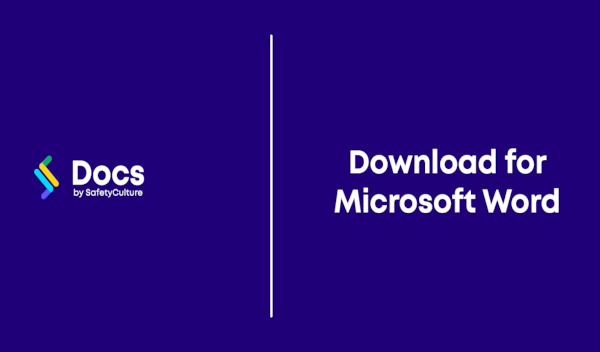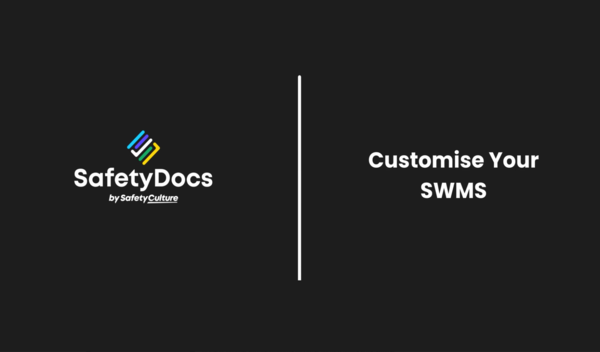Modern Slavery Policy
- Instant Document Delivery via Email.
- Add to your existing management system.
- Can assist in ensuring workers are adequately trained.
- Customisation instructions provided.
- Microsoft Word Format (Fully editable).
- Only pay once (no subscriptions required).
Modern Slavery Policy
Our Modern Slavery Policy is designed to assist businesses in identifying and preventing any instances of modern slavery within their operations and supply chains.
This policy is an essential tool for safeguarding human rights and maintaining ethical practices in global business operations, particularly in regions like Asia-Pacific where the risk of such practices is significantly higher.
Contents
The policy is structured to cover all aspects necessary for thorough implementation:
- Definitions - Clearly defines key terms related to modern slavery to enhance clarity and understanding.
- Review Procedure - Outlines the process for periodic review of the policy to ensure its ongoing relevance and effectiveness.
- Document Control - Details mechanisms for managing policy documentation, including:
- Distribution Record Register to ensure all relevant stakeholders have access to the policy.
- Amendment Record Register to log any changes, maintaining current and accurate information.
- Background - Provides context about the prevalence and risks of modern slavery, particularly in the Asia-Pacific region.
- Modern Slavery Policy - States the organisation's commitments and standards against modern slavery.
- Training - Outlines training programs to educate employees and management on recognising and preventing modern slavery.
- Risk Assessment - Describes the methodology for assessing areas of risk within the company and its supply chains.
- Reporting Responsibilities - Specifies the channels and responsibilities for reporting suspected instances of modern slavery.
- Supply-Chain Supplier Conduct - Outlines expectations and standards for suppliers to ensure compliance throughout the supply chain.
- Non-compliance with this Policy - Defines the consequences and corrective actions for breaches of the policy.
Key Features
The Modern Slavery Policy is structured to provide businesses with a robust framework to actively combat modern slavery. Key features include:
- Comprehensive Definitions: Clarifies terms and practices associated with modern slavery to ensure understanding across all levels of the organisation.
- Rigorous Monitoring and Review Procedures: Ensures the policy remains effective and up-to-date with current laws and standards.
- Detailed Document Control: Maintains accurate records of policy distribution and amendments, enhancing traceability and accountability.
Who is it Suitable for?
This Modern Slavery Policy is essential for businesses operating internationally, particularly in regions at high risk for modern slavery practices.
It is particularly valuable for compliance officers, supply chain managers, and corporate responsibility managers dedicated to maintaining high ethical standards and regulatory compliance across various industries.
- Instant Document Delivery via Email.
- Add to your existing management system.
- Can assist in ensuring workers are adequately trained.
- Customisation instructions provided.
- Microsoft Word Format (Fully editable).
- Only pay once (no subscriptions required).
Modern Slavery Policy
Our Modern Slavery Policy is designed to assist businesses in identifying and preventing any instances of modern slavery within their operations and supply chains.
This policy is an essential tool for safeguarding human rights and maintaining ethical practices in global business operations, particularly in regions like Asia-Pacific where the risk of such practices is significantly higher.
Contents
The policy is structured to cover all aspects necessary for thorough implementation:
- Definitions - Clearly defines key terms related to modern slavery to enhance clarity and understanding.
- Review Procedure - Outlines the process for periodic review of the policy to ensure its ongoing relevance and effectiveness.
- Document Control - Details mechanisms for managing policy documentation, including:
- Distribution Record Register to ensure all relevant stakeholders have access to the policy.
- Amendment Record Register to log any changes, maintaining current and accurate information.
- Background - Provides context about the prevalence and risks of modern slavery, particularly in the Asia-Pacific region.
- Modern Slavery Policy - States the organisation's commitments and standards against modern slavery.
- Training - Outlines training programs to educate employees and management on recognising and preventing modern slavery.
- Risk Assessment - Describes the methodology for assessing areas of risk within the company and its supply chains.
- Reporting Responsibilities - Specifies the channels and responsibilities for reporting suspected instances of modern slavery.
- Supply-Chain Supplier Conduct - Outlines expectations and standards for suppliers to ensure compliance throughout the supply chain.
- Non-compliance with this Policy - Defines the consequences and corrective actions for breaches of the policy.
Key Features
The Modern Slavery Policy is structured to provide businesses with a robust framework to actively combat modern slavery. Key features include:
- Comprehensive Definitions: Clarifies terms and practices associated with modern slavery to ensure understanding across all levels of the organisation.
- Rigorous Monitoring and Review Procedures: Ensures the policy remains effective and up-to-date with current laws and standards.
- Detailed Document Control: Maintains accurate records of policy distribution and amendments, enhancing traceability and accountability.
Who is it Suitable for?
This Modern Slavery Policy is essential for businesses operating internationally, particularly in regions at high risk for modern slavery practices.
It is particularly valuable for compliance officers, supply chain managers, and corporate responsibility managers dedicated to maintaining high ethical standards and regulatory compliance across various industries.


